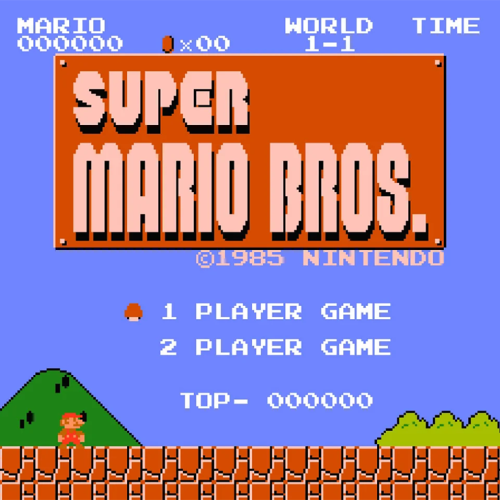The Super Mario Bros Franchise: A Legacy of Innovation and Joy

Jamal Habib

The Super Mario Bros Franchise: A Legacy of Innovation and Joy
The Super Mario Bros franchise is not just a cornerstone of Nintendo‘s identity; it’s a fundamental part of video game history. Created by the legendary game designer Shigeru Miyamoto, Super Mario Bros transformed the landscape of gaming when it debuted on the Nintendo Entertainment System (NES) in 1985. This simple yet captivating platformer introduced players to the now-iconic plumber, Mario, setting off on a quest to save Princess Peach from the villainous Bowser. Over the years, the franchise has not only maintained its relevance but has also expanded into various genres, spawning numerous spin-offs and continuing to innovate with titles like the recent “Super Mario Bros Wonder.”
The Beginnings and Evolution
The inception of Super Mario Bros was a response to the gaming industry’s dire state in the early 1980s. Shigeru Miyamoto, alongside his team at Nintendo, aimed to create a game that was both accessible and challenging, inviting players to explore its world with curiosity and joy. The game’s success was immediate, credited with revitalizing the video game industry after the 1983 crash.
Super Mario Bros set the standard for platformers with its precise controls, memorable music by Koji Kondo, and vibrant worlds. Its success led to numerous sequels on the NES, each expanding on the formula with new mechanics and characters, including the introduction of Luigi as Mario’s brother and co-op partner.
Spawning New Franchises and Spin-offs
The original 2D platforming adventures laid the groundwork for what would become a sprawling franchise. The transition to 3D with “Super Mario 64” in 1996 was revolutionary, offering freedom of movement in a fully realized 3D world. This title set a new benchmark for 3D platforming games, a testament to the franchise’s ability to innovate and adapt.
The franchise’s versatility is also evident in its successful spin-offs. “Mario Kart,” “Mario Party,” and “Mario Sports” games have become staples on their own, each taking the core characters and themes of the Mario universe and applying them to different genres. These spin-offs have not only added depth to the franchise but also introduced multiplayer experiences that have become synonymous with family and friends gathering to play.
Super Mario Bros Wonder: A Fresh Adventure in the Flower Kingdom
“Super Mario Bros Wonder,” released on October 20, 2023, for the Nintendo Switch, marks a vibrant addition to the iconic Super Mario Bros franchise. Set in the enchanting Flower Kingdom, this game introduces the Wonder Flower, a novel power-up that transform’s gameplay in magical ways, such as animating objects and altering level environments to reveal secrets and new paths. The game’s innovative mechanics, including new power-ups like the Elephant Fruit, Bubble Flower, and Drill Mushroom, alongside the introduction of badges that grant special abilities, breathe fresh life into the classic platforming formula.
Developed by veteran Mario team members including producer Takashi Tezuka and director Shiro Mouri, “Super Mario Bros Wonder” aims to recapture the original allure of exploration and mystery that has defined the franchise. It has been met with universal acclaim for its creativity and gameplay, quickly becoming the fastest-selling Super Mario game to date. By offering a mix of cooperative and competitive multiplayer modes, it ensures that players of all skill levels can enjoy the adventure together, making it a delightful addition to the franchise that both honors its roots and looks forward to its future.
The Impact of Mario
Beyond its commercial success, the Super Mario Bros franchise has significantly impacted popular culture and the development of video games as a medium. Mario has become an iconic character, recognized worldwide, symbolizing the joy and wonder of video games. The franchise’s ability to continually reinvent itself while staying true to its core identity is a rare achievement in the industry.
Conclusion
From its humble beginnings on the NES to the latest innovations in “Super Mario Bros Wonder,” the Super Mario Bros franchise remains a testament to the enduring appeal of Mario’s adventures. Its history is a chronicle of video game evolution, reflecting changes in technology, game design, and player expectations. As it ventures into new territories with each release, the franchise continues to captivate players old and new, a legacy of innovation and joy that shows no signs of slowing down. The Super Mario Bros franchise is not just a series of games; it’s a cultural phenomenon that continues to define what video games can be.
